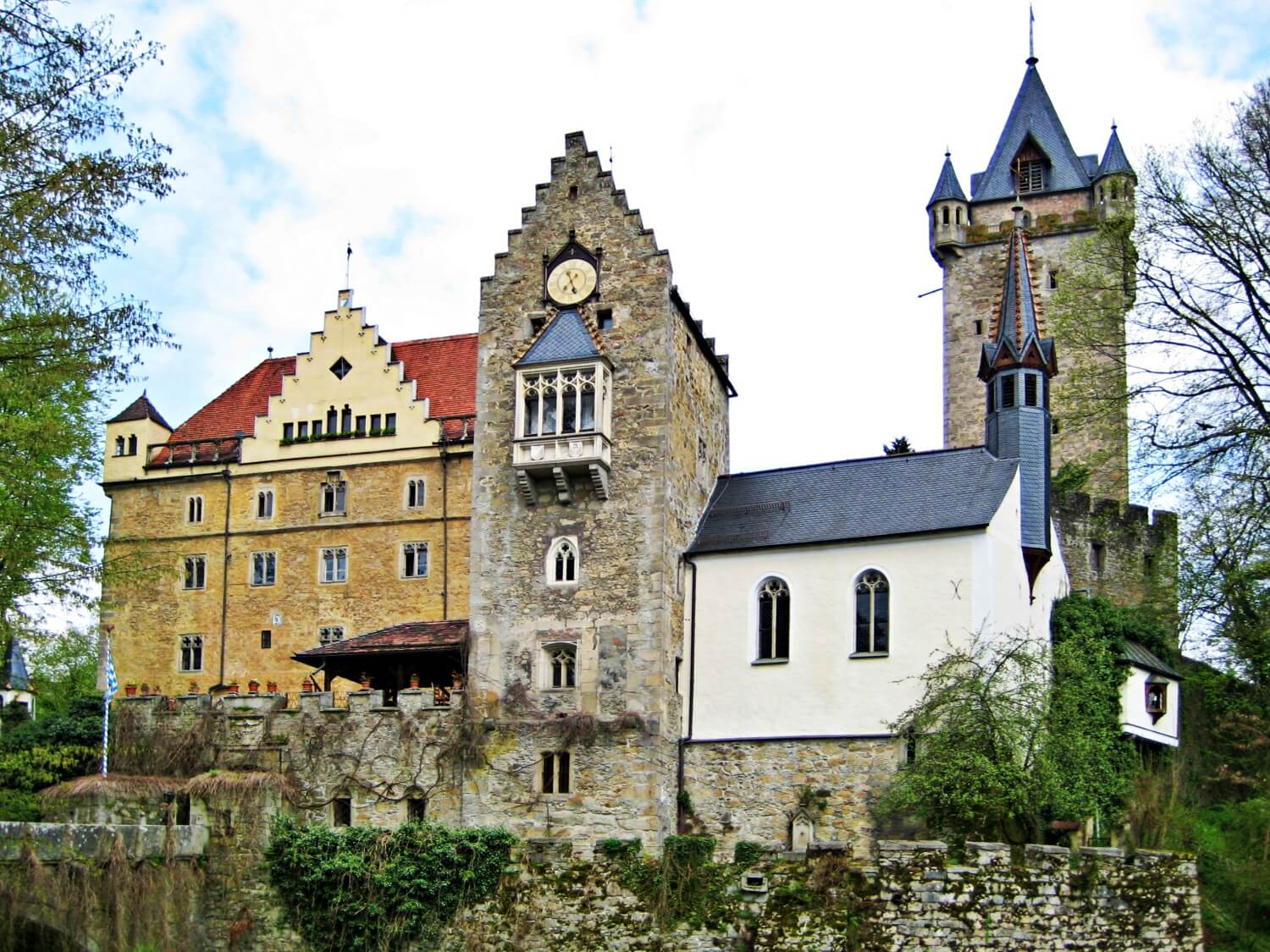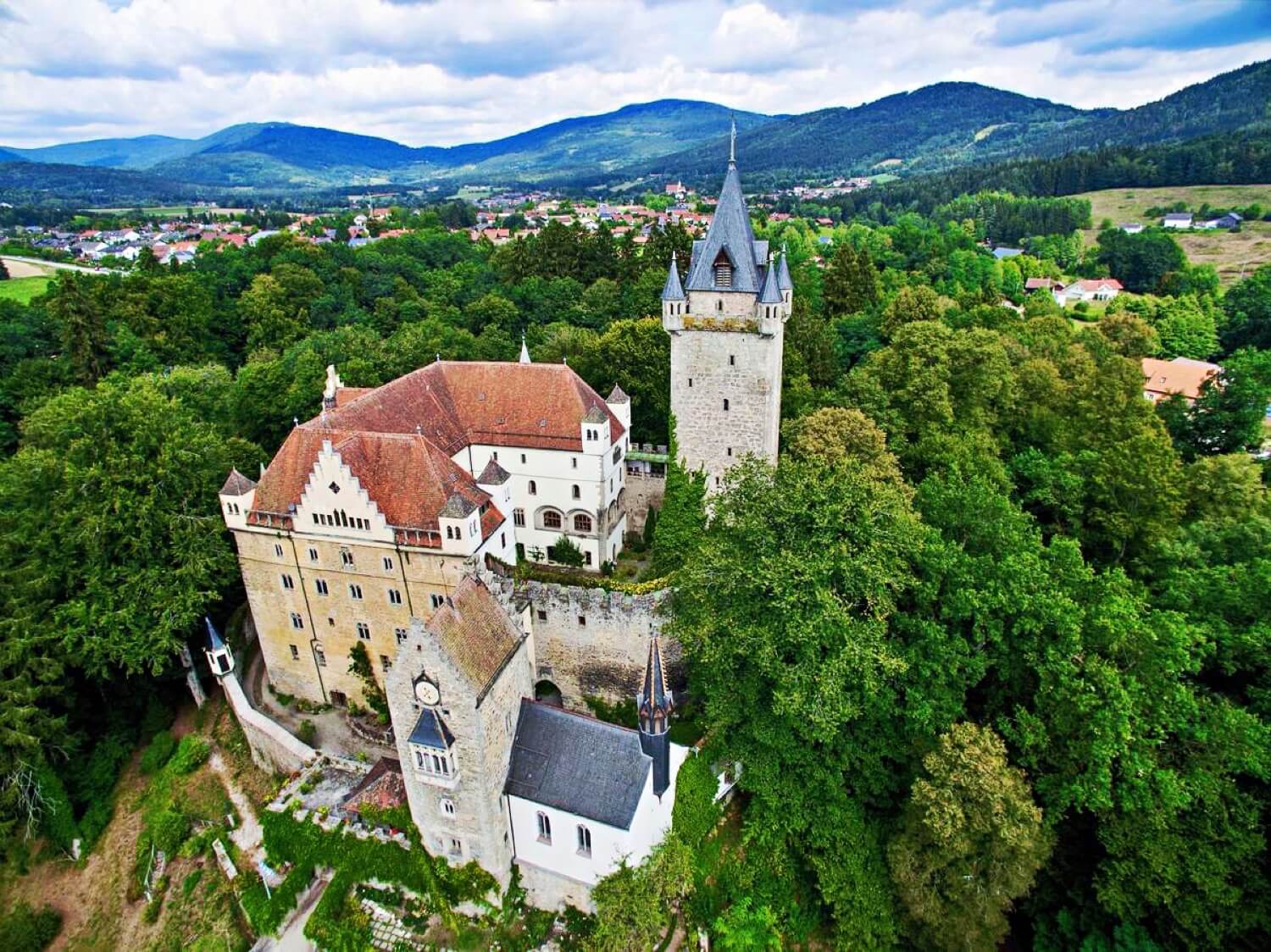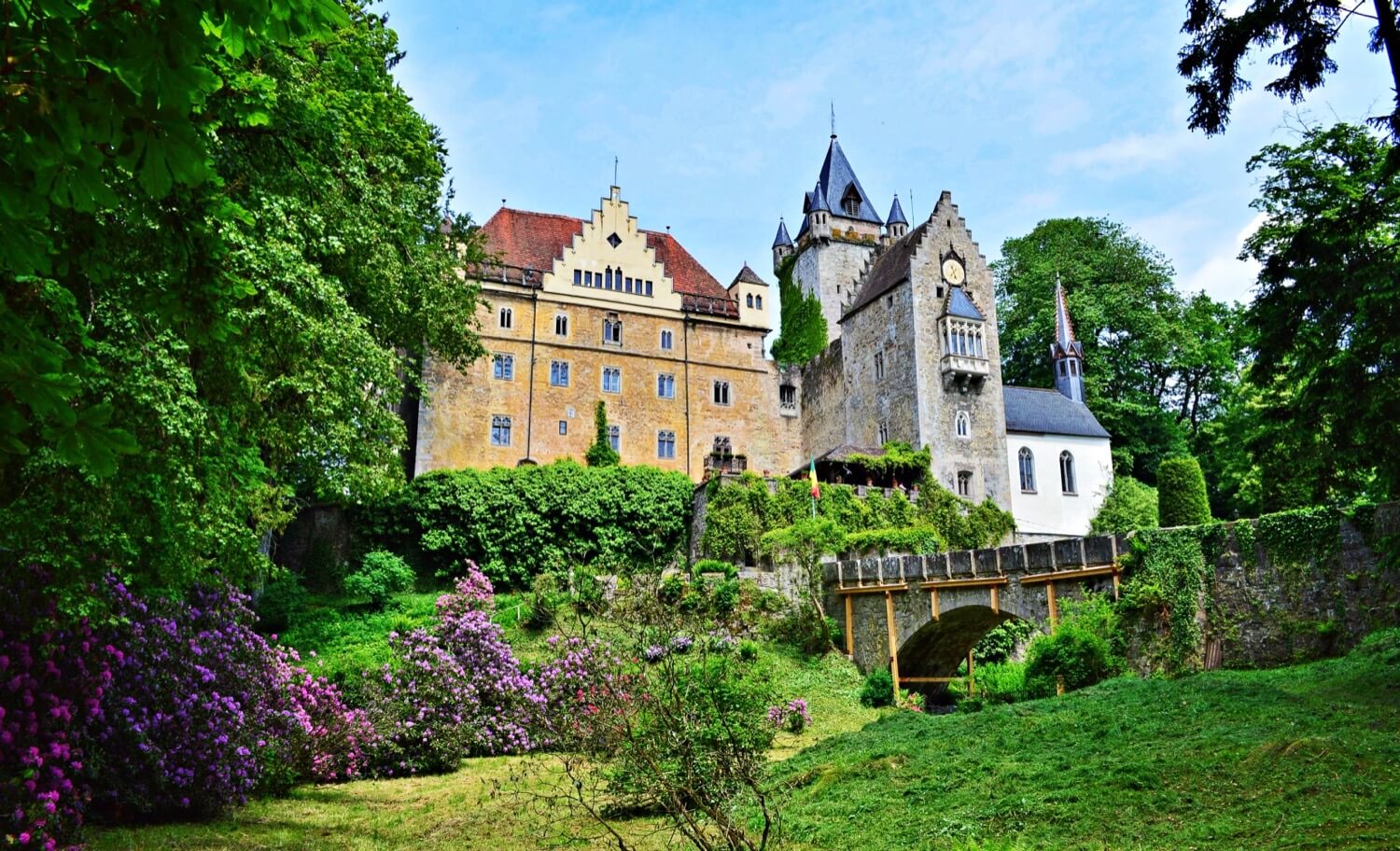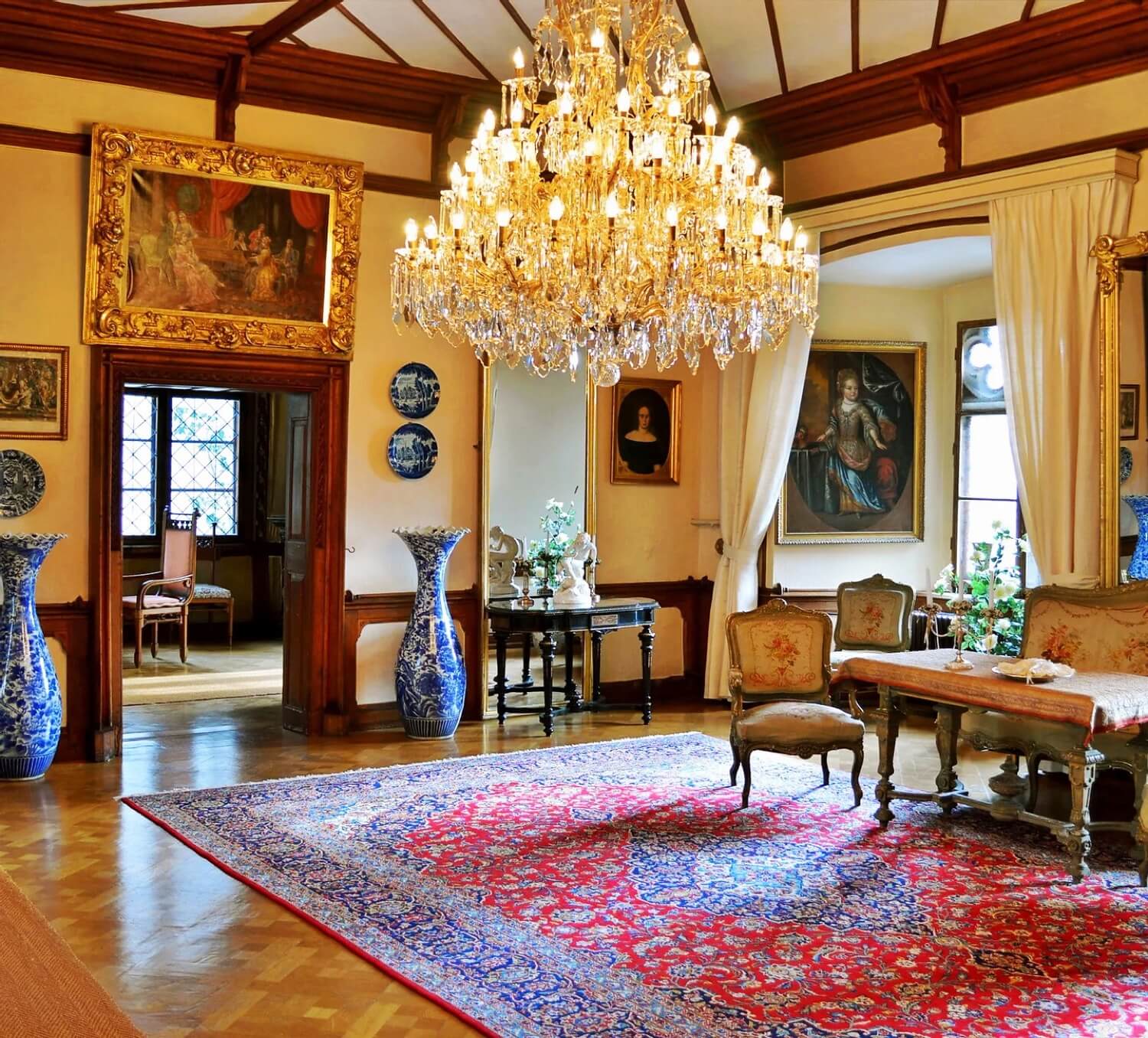Schloss Egg
Niederbayern Bayern Germany
castle, chateau
Schloss Egg
Niederbayern Bayern Germany
castle, chateau
Schloss Egg was built in the 11th century in the valley of the Mettenbach as a Wasserburg (water castle)
Schloss Egg steht im Ortsteil Egg in der Gemeinde Bernried im Landkreis Deggendorf
Previous names
Schloss Egg, Schloss Egg
Description
Schloss Egg was built in the 11th century in the valley of the Mettenbach as a Wasserburg (water castle). Egg is first mentioned in 1103 as the seat of Thiemo de Ekke.
The Ecker died out in 1403. In 1427, Castle Egg was sold to Henry (Wittelsbach) XVI of Bavaria. The Castle has changed hands many times and is now owned by the Hartl family.
Castle Egg is a completely preserved medieval castle complex, around which the former moat draws. The surroundings were romantically transformed: in addition to the relocation of the original access, additional "weirs" were rebuilt in the 19th century. Originally decorated ballrooms and salons from the 19th century can still be visited today.
The complex was renovated by Count Joseph Ludwig von Armansberg from 1838 to 1842 under the direction of architect Ludwig Foltz of Regensburg.
The castle was decorated with medieval-style "ornaments", such as gables and turrets. In 1839, the old wooden bridge was demolished and replaced by a new one, consisting of several stone arches. The tower of the Castle is 45m high and contains an oubliette.
The castle also contains a chapel built in 1349. The former stables (Burgstall) of the Castle have been converted into a hotel and restaurant.
https://www.castlesworld.com/
Schloss Egg steht im Ortsteil Egg in der Gemeinde Bernried im Landkreis Deggendorf. Die ehemalige Verteidigungsanlage wurde im 11. Jahrhundert im Tal des Mettenbachs als Wasserburg angelegt und Mitte des 19. Jahrhunderts romantisch überformt.
Geschichte
Egg wurde erstmals im Jahr 1103 als Sitz des Thiemo de Ekke erwähnt. Eine Untersuchung von Hölzern aus dem Burgturm im Jahr 2003 bescheinigt diesem ein Alter von etwa 850–900 Jahren. Die Ecker dienten zunächst den Grafen von Bogen und nach deren Aussterben 1242 den bayerischen Herzögen.
1403 kam Egg an die Fraunberger, welche über die Grafschaft Haag herrschten. 1427 verkauften diese die Anlage für 8000 ungarische Golddukaten an Herzog Heinrich den Reichen. Die Herzöge setzten Pfleger ein oder verpfändeten die Burg an reiche Gefolgsleute. Der erste Pfleger war Kaspar Hautzendorfer zu Hauzendorf, 1448 war der „edl und vest“ Parzival von Aichperg herzoglicher Pfleger, 1458 Ritter Jörg der Seiboltsdorfer zu Seibersdorf, 1476 bis 1483 Graf Sebastian I. von Ortenburg, 1508 Hanns Dachsperg zu Aschperg (Aspach) und 1518 Ott der Zengl zu Thonstein. Über eine Verpfändung kam 1520 die Burg an Albrecht Nothafft zu Wernberg auf Aholming und Rathsmannsdorf. Dieser war mit Euphemia, Tochter des Georg von Preysing, verheiratet. Nach dem Tod ihres Gatten stellte sie im Namen ihres unmündigen Sohnes Onophrius Erbrecht auf verschiedene Güter in Egg aus. Onophrius war Edelknabe am Hof König Ferdinands in Wien und verstarb 1529 mit 11 Jahren. Euphemia heiratete daraufhin den Ludwig Pinzenauer von Pienzenau, Hofmarschall zu Landshut; 1534 nannte er sich Herr von Falkenstein und Egg und war Vizedomus in Straubing. Seine Tochter Veronika heiratete 1547 den Wolf Dietrich von Maxlrain zu Maxlrain, Wallenburg und Aholming, der sich 1551 in einem Lehensbrieg als „Inhaber der Herrschaft Egg und Freiherr zu Waldberg“ nannte, 1578 wurde als Pfleger Tobias Wieser genannt.
1581 löste Herzog Wilhelm V. Egg wieder ein und verkaufte es am 4. Februar 1581 an seinen Rat und Kämmerer Karl Keckh (auch Köck geschrieben), „Camermaister zu München und Herr zu Prunn“. Nach diesem folgte sein Sohn Friedrich (1593–1604 auf Egg), der auch Loham, Wildenforst und Findelstein (ein Schloss am Fuße des Geiersberges in Deggendorf, von dem heute nur mehr Reste übrig sind) innehatte. 1604 übertrug Friedrich Keckh das Schlossbenefizium an das Kloster Metten unter dem Abt Johannes Nablas. Sein Nachfolger Rudolf (1606–1636 auf Egg) bezeichnete sich als „Herr von Egg, Loham und Wildenforst“. Am 28. November 1633 kamen die Schweden, verwüsteten Egg und steckten das Schloss in Brand. Rudolf zog sich nach Findelstein in Deggendorf zurück, aber auch dort kamen am 14. Dezember 1633 die Schweden und plünderten die Stadt. Der nächste Keckh war Ernst Keckh (1636–1648 auf Egg); unter ihm wurde Loham abgetrennt und der Witwe des Rudolf, Regina Keckh, gegeben. Ernst Keckh war der letzte der Keckh auf Egg, das in der Folge 1648 an Franz Graf von Spaur verkauft wurde. Die Keckh erwarben 1654 Schloss Irlbach.
Franz Graf von Spaur war Kämmerer eines Erzherzogs von Österreich, seine Gemahlin hieß Helena, Tochter des letzten Tanberg Georg auf Offenberg, und so kam auch Offenberg an Franz Spaur. Seine Erbtochter Catharina ehelichte einen Freiherrn David von Wagner, der 1660–1698 auf Egg war. Dieser hatte von Graf Sigmund von Thun Schloss und Dorf Sarenthein bei Bozen erworben und nannte sich danach Freiherr von Sarentheim, 1651 wurde er in den Freiherrnstand und 1687 in den Grafenstand erhoben. Nach seinem Tod fiel Egg an seinen Schwager, den Grafen Anton Sebastian von Montfort (1698–1710 auf Egg). Dieser verkaufte Schloss Egg am 11. Juli 1709 für 42.000 Gulden an Alexander Ignaz von Schrenk, der bereits 1673 Loham und Mariaposching erworben hatte. Die Schrenck von Notzing waren von 1709 bis 1751 auf Egg. Deren Sohn Alexander Ignaz wurde von Kurfürst Max Emanuel in den Freiherrenstand erhoben und war Pfleger auf Diessenstein sowie Besitzer von Notzing und Vilsessing, zudem war er während des Spanischen Erbfolgekrieges Anhänger der Habsburger. Er verstarb am 27. November 1716. Ihm folgte sein Sohn, Franz Adam Ignatz Freiherr von Schrenck und Notzing, kurfürstlich-bayerischer Kämmerer und seit 1715 Pfleger von Diessenstein. Er starb bereits mit 27 Jahren am 25. Juli 1724. Der am 23. Mai 1723 geschlossenen Ehe mit Anna Jolanda von Kriestorff entstammten keine Kinder. So kamen Egg und Loham an Maria Magdalena von Schrenck, geborene von Neuching, die Mutter des Verstorbenen.
Von ihr erbte bzw. kaufte 1752 ihr zweiter Schwiegersohn Johann Anton Joseph Freiherr von Armansberg auf Schönberg Egg und Loham. Die Armansberger waren von 1751 bis 1859 auf Egg. Graf Joseph Ludwig von Armansperg ließ die Burg um 1840 für 84.000 Gulden romantisieren und verbrachte seinen Lebensabend dort. Er war verheiratet mit Theresia von Weichs (* 6. Mai 1787 zu Straubing, † 1859 in Regensburg), aus der Ehe gingen vier Töchter hervor. Seine Tochter Sophia Carolina Antonia Maria Clara (* 12. August 1819 in Augsburg, † 8. August 1868 in Egg) heiratete den moldauischen Großbojar Demetrius von Cantacuzenos. Sie hatte 1859 nach dem Tod ihrer Mutter die väterlichen Güter erhalten. Aus der Ehe mit Fürst Demetrius gingen vier Kinder hervor: Alexander, Konstantin, Irene Karoline (* 1840) und Theodor (* 1841, wurde im Krieg von 1866 verwundet und lebte danach in Pension, verheiratet mit dem Gräfin Deim). Nach dem Tod von Sophia wurden die Güter Egg und Loham getrennt, der Sohn Alexander erhielt Egg, der Sohn Konstantin Loham. Alexander hatte seine Verwandte Fürstin Elise von Cantacuzenos geheiratet. Am 1. Mai 1871 verkaufte er Egg an den Baron Karl von Eichthal und zog nach München. Seine Tochter Minka Alexandra ist in der Schlosskapelle von Egg begraben. Fürst Konstantin von Cantacuzenos verkaufte 1871 sein Gut Loham an den Baron Carl sen. von Eichthal und erwarb dafür das Schloss Guttenburg bei Mühldorf. Baron Carl sen. von Eichthal war auch Inhaber von Hohenburg. Er vergrößerte das Brauhaus zu Egg sowie die zum Schloss gehörende Ökonomie und ließ das Schloss Egg ausbauen. Er war verheiratet mit Isabella Gräfin von Chuen-Belasi. Aus der Ehe stammten vier Kinder: K(C)arl Robert, Sophie, Charlotte und Irene. 1876 übergab Baron Carl sen. den Besitz seinem Sohn Baron Carl jun. von Eichthal auf Offenberg, der ältere Baron ist am 3. Juli 1880 in Miesbach verstorben. Die Erbengemeinschaft verkaufte am 15. Oktober 1882 Schloss Egg an Adolf Graf von Hohenthal und Bergen (* 26. Mai 1857 in Berlin). Das Anwesen blieb bis 1931 im Familienbesitz. 1931 ersteigerte das Kloster Metten das Schloss.
1939 kaufte der Fabrikant und Konsul von China Joseph Maximilian Hartl († 1957) das Schloss (ohne die Ökonomiegründe). Im Besitz seiner Familie ist das Schloss heute in der 3. Generation.
Heute können im sogenannten Spiegelsaal von Schloss Egg standesamtliche Trauungen durchgeführt werden.
Useful information
Gratis
5.00 EUR
Kinder: 3.00 EUR
0 - 6 Jahre: gratis
ab 20 Personen: 4.00 EUR
- Herrliche Aussicht
- Broschüren in Fremdsprachen
- Der äußere Teil ist frei zugänglich
- Informationstafeln
info@schloss-egg.de
- Haustiere sind erlaubt
- Räume zu vermieten
- In der warmen Jahreszeit ist Schloss Egg für Besucher geöffnet
-
External links
Nearby castles
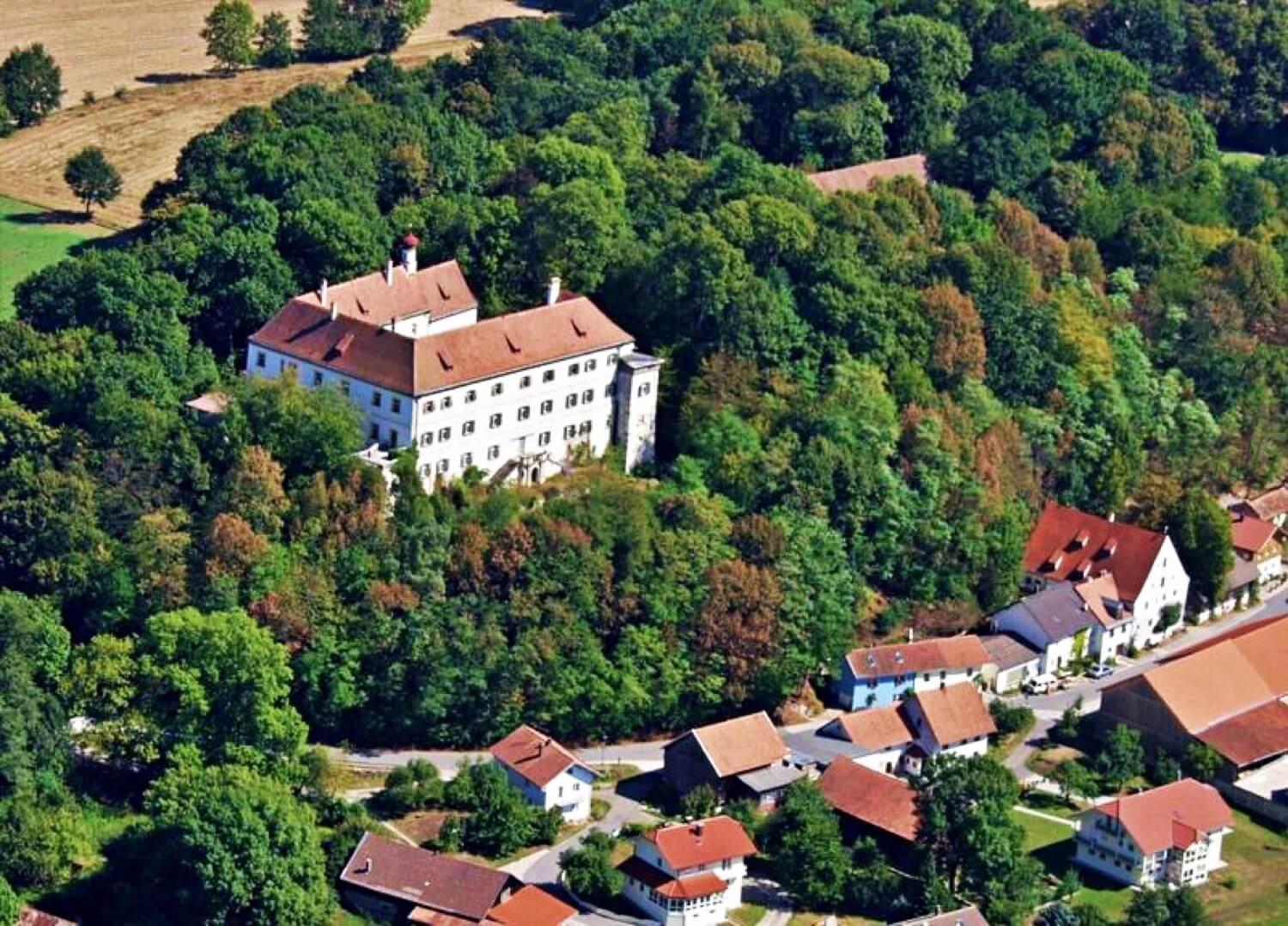
Schloss Offenberg
Niederbayern
4.9km
castle, chateau
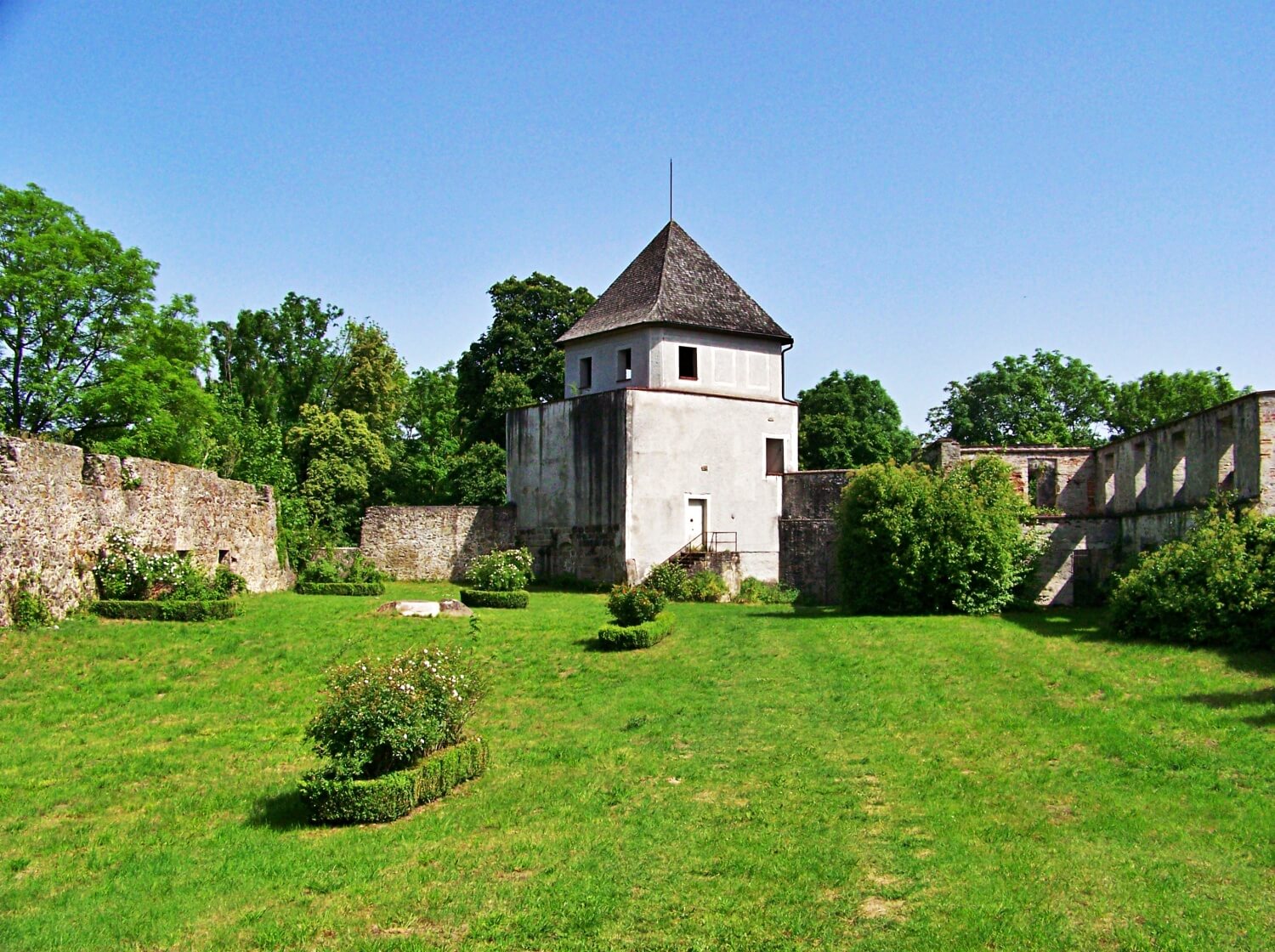
Burgruine Natternberg
Niederbayern
6.4km
castle, chateau
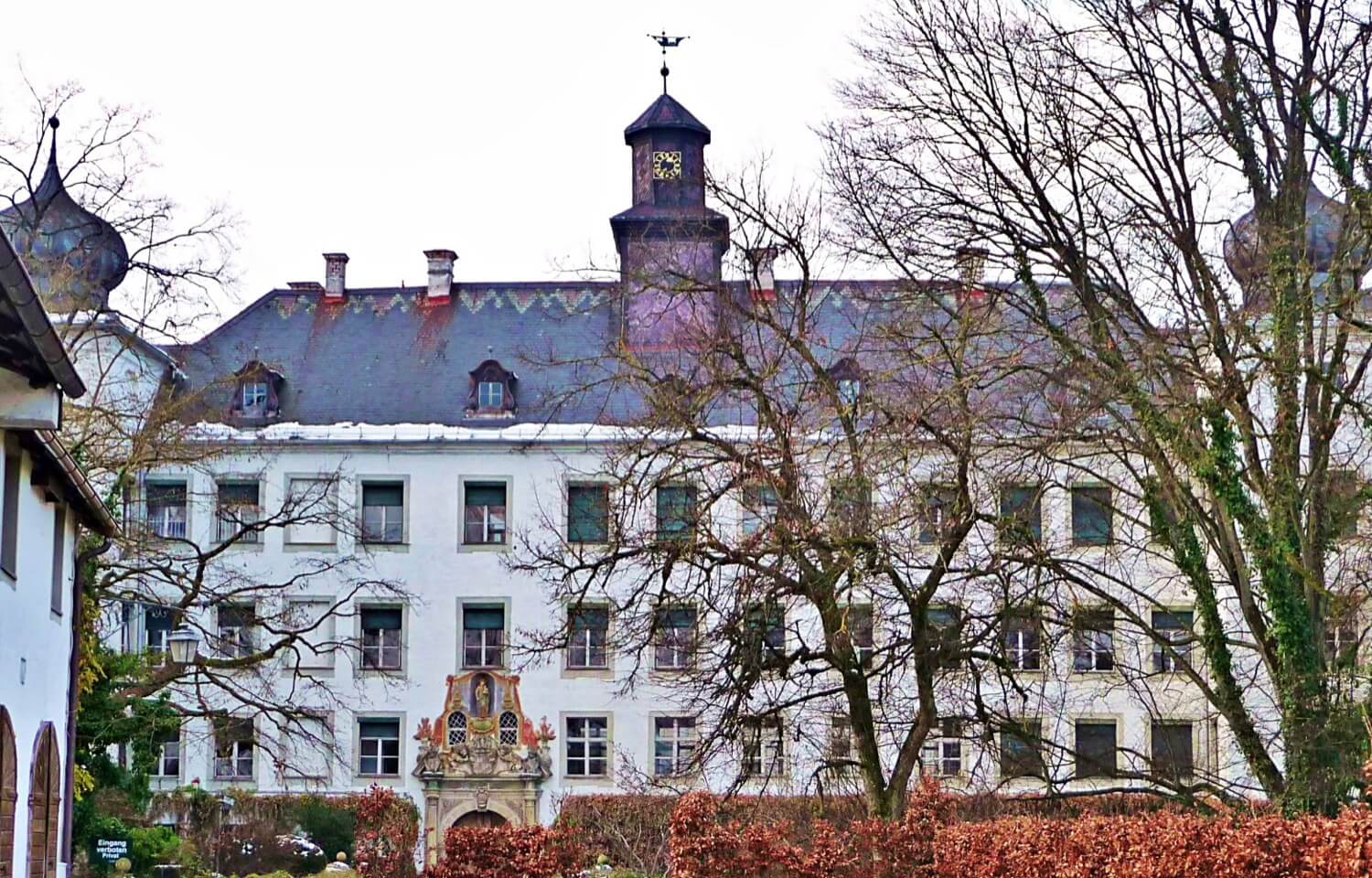
Schloss Moos
Niederbayern
14.8km
castle, chateau
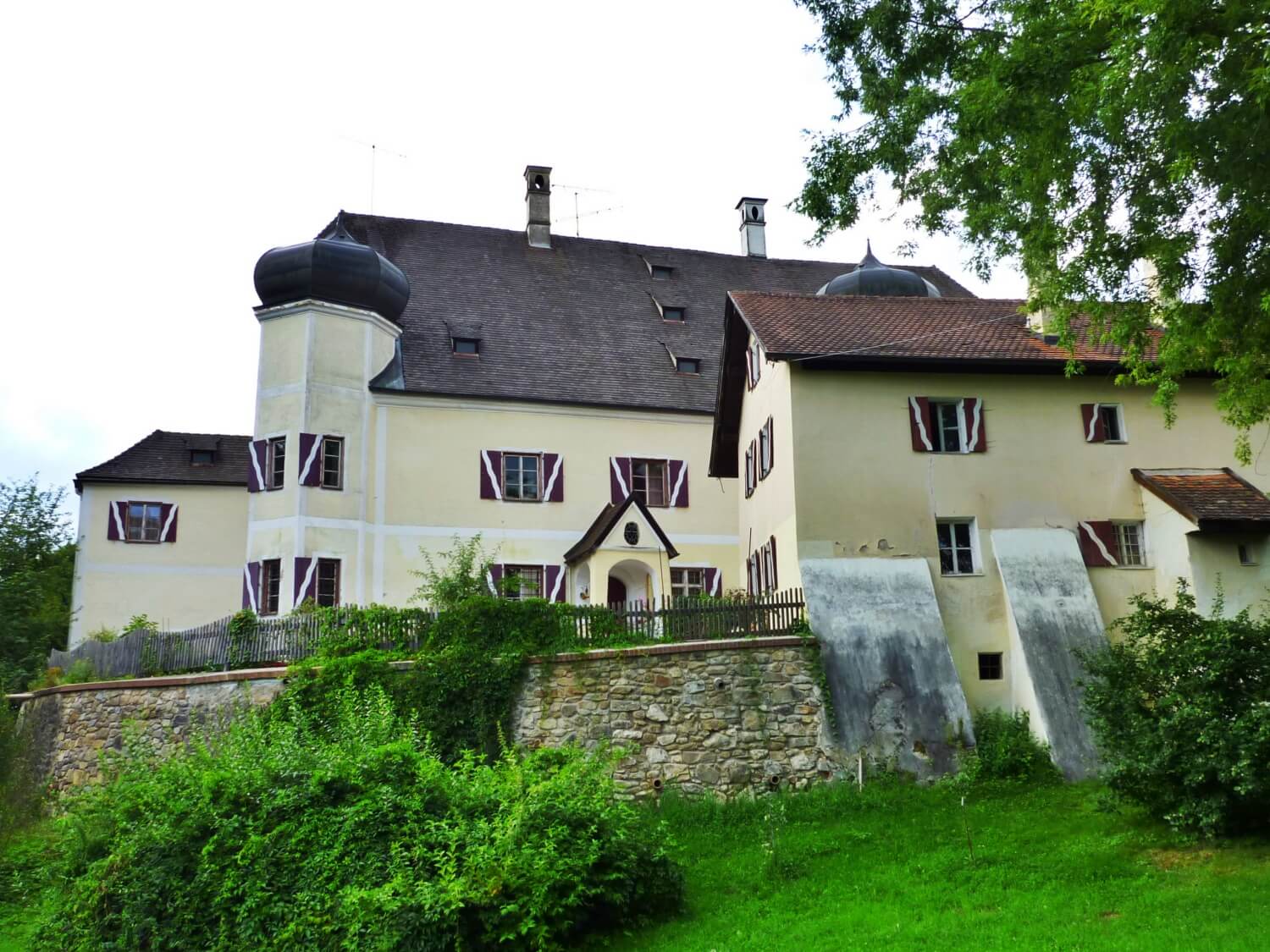
Schloss Haggn
Niederbayern
15.6km
castle, chateau
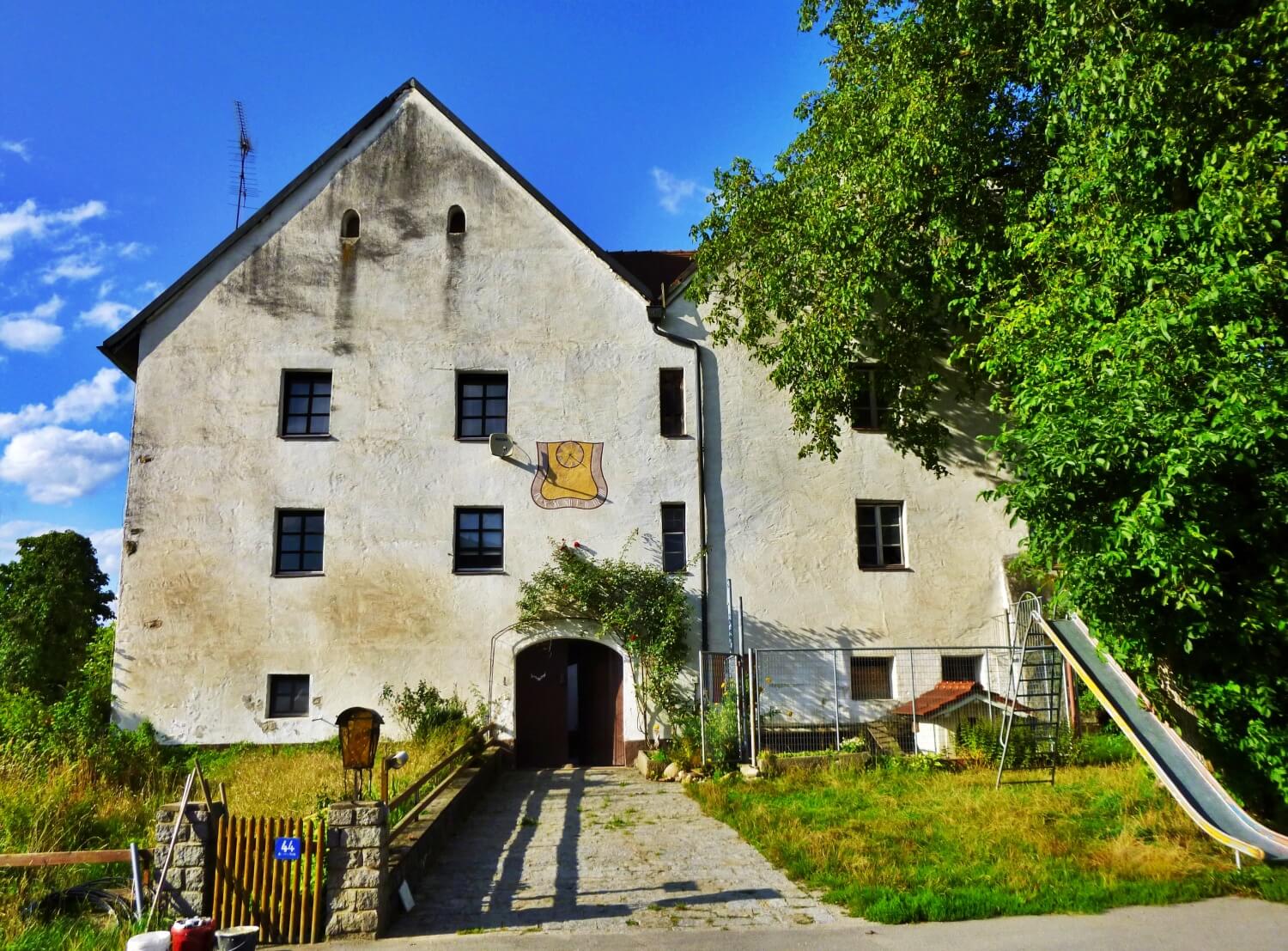
Schloss Au vorm Wald
Niederbayern
15.7km
castle, chateau
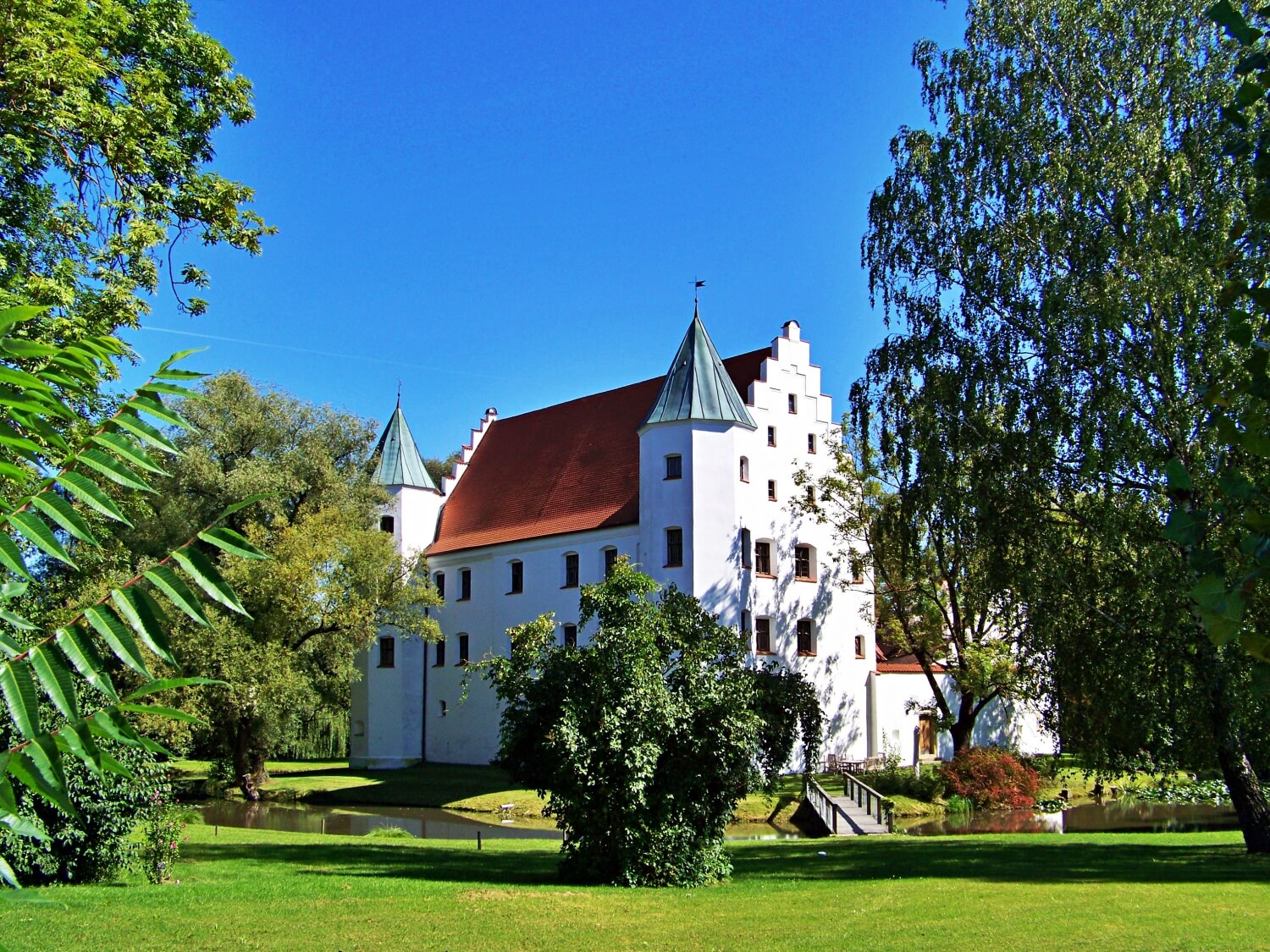
Schloss Schambach
Niederbayern
17.5km
castle, chateau
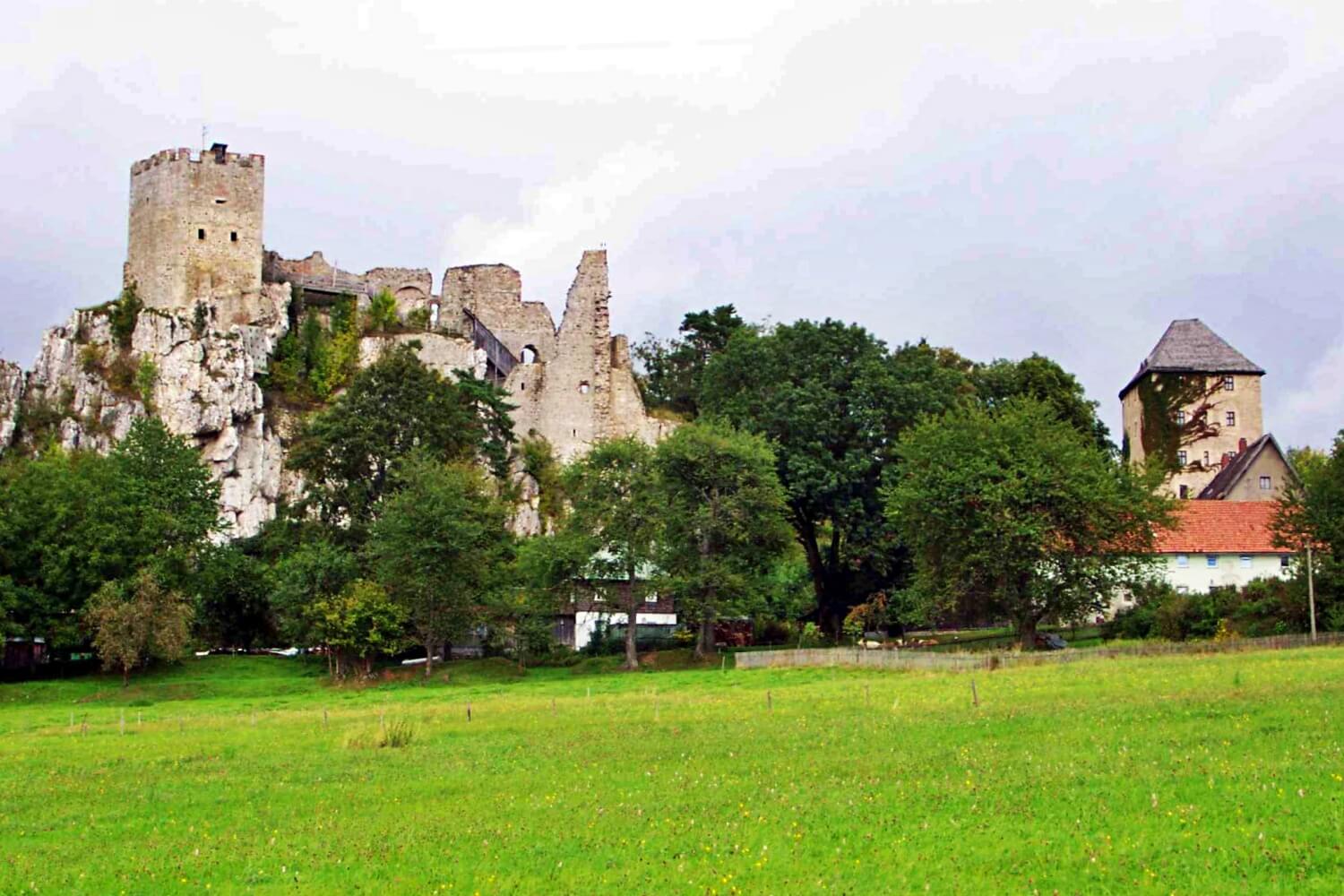
Weißenstein Castle (Lower Bavaria)
Niederbayern
17.8km
castle, chateau
